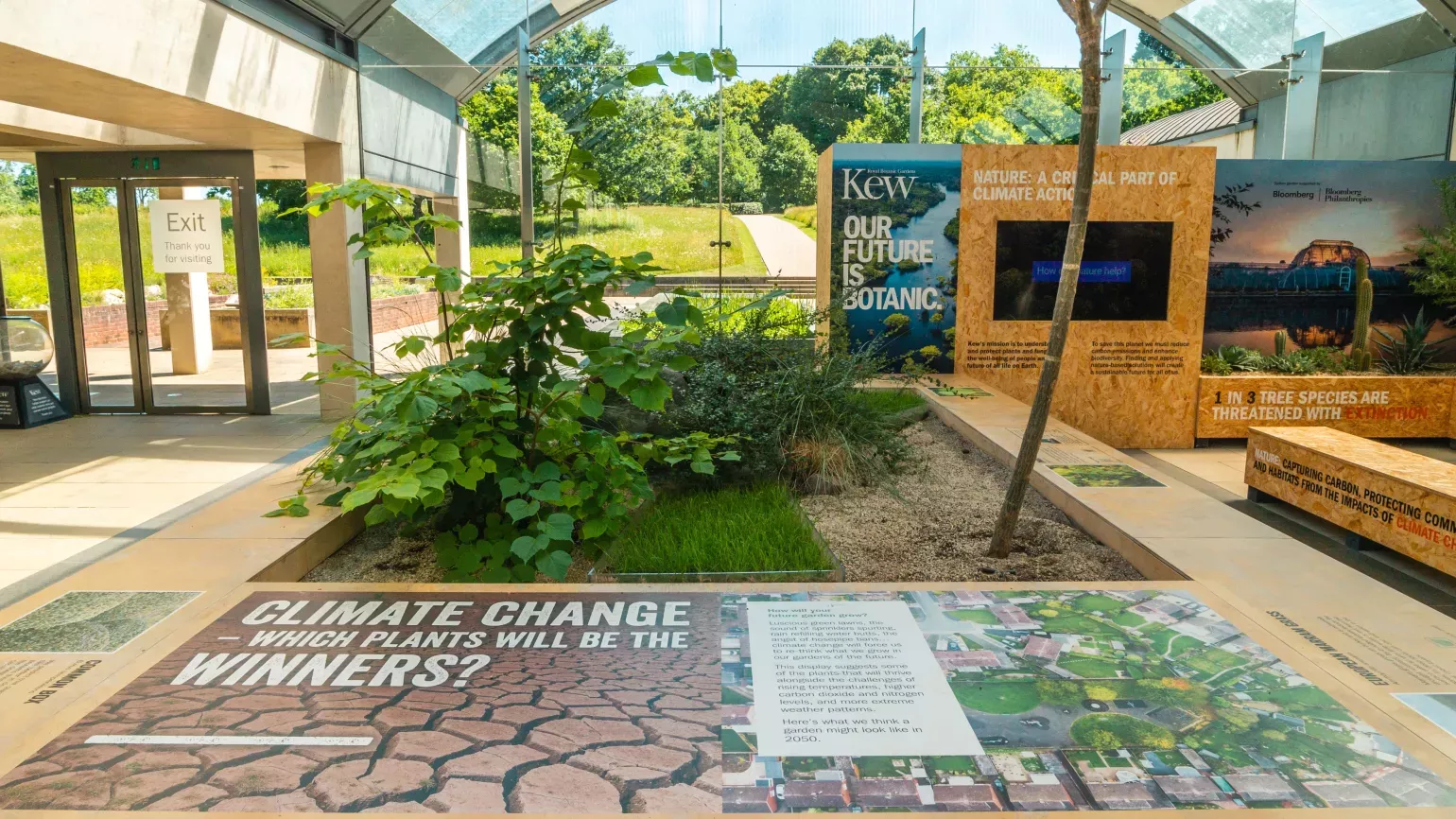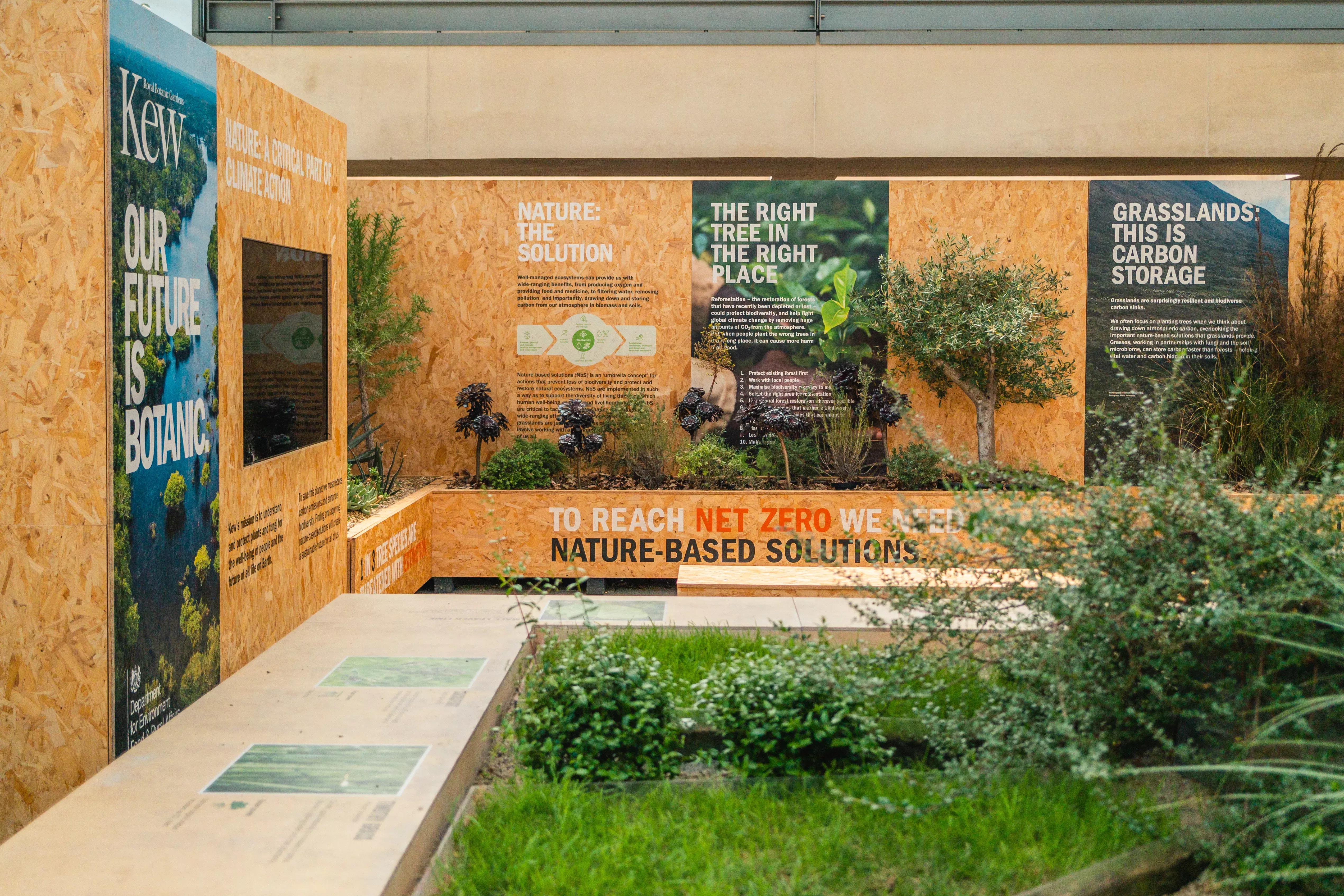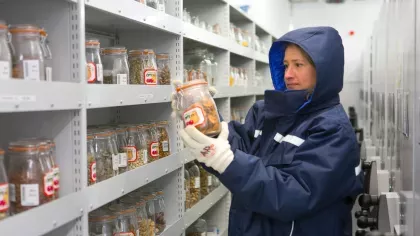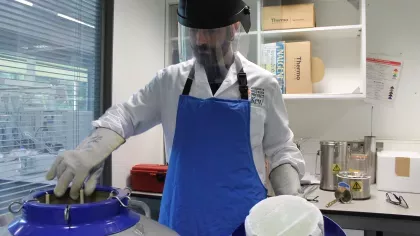Millennium Seed Bank
Learn about our scientific mission to protect wild plant biodiversity in our underground seed bank.

In the heart of rural Sussex lies a treasure trove of scientific excellence.
The Millennium Seed Bank hides an underground collection of over 2.4 billion seeds from around the world, banking them to conserve them for the future.
Enter our glass atrium to see our scientists at work in front of your very eyes. You can track the journey of a seed in our laboratories, discover our Carbon Garden from our stand at COP26; and explore the future of seeds with our interactive Surviving or Thriving exhibition.
Right beneath your feet are our sub-zero chambers, where we store seeds collected around the world by our global partnership in flood, bomb and radiation-proof vaults.
Outside our building, planted parterres showcase eight threatened habitats of the British Isles.
Find the Millennium Seed Bank at markers 1 to 2 on our Map of Wakehurst.




Embark on a virtual tour
Explore the Millennium Seed Bank from home, using the links below.
Why do we bank seeds?
With two in five plant species at risk of extinction, it’s a race against time to protect our incredible plant life.
By storing seeds ex situ (away from their natural habitat) and supporting seed banks in countries around the globe, we are giving a safe home to some of the world’s most threatened plants.
It means that we can germinate and reintroduce these plants back into the wild or use them for scientific research in finding our future food or medicines.
We have nearly all the UK’s native plant species preserved in our seed bank.
.jpg.webp?itok=kTSdS2y8)
Where do we collect seeds from?
The MSB is the largest, most diverse wild plant species genetic resource in the world; a fantastic result of contributions from 97 countries since 2000.
Our scientists and their partners collect seeds from some of the most extreme and familiar landscapes.
Seed collections are stored in the country where they were collected, and a part of the collection is sent to the MSB for safety backup.
We prioritise:
-
Plants with seeds that can tolerate being dried and frozen
-
Areas vulnerable to climate change: alpine, dryland, coastal and island ecosystems
-
Plants that are useful for livelihoods and economies
-
Plants that are relatives of to those that we eat
-
Plants that are endemic to that location (not found anywhere else)
-
Plants that are threatened in the wild.
This scientific hub is a great introduction into the vital work that Kew scientists do every day.
In fact, many of the plants grown in Wakehurst’s botanic garden started their life in this very place.
Both the American Prairie and the future Silk Road Steppe feature plants grown from Millennium Seed Bank material.
Visit our Habitat Parterres
The Habitat Parterres at the front of the Millennium Seed Bank are mini gardens showcasing the wild habitats of the UK from cornfields to mountains.
Don't miss these wildlife havens on your next visit to Wakehurst;
- Our Hay Meadow parterre looks so authentic to wildlife that we’ve had voles take up residence here – and they took great pleasure in devouring all the snake’s head fritillaries (Fritillaria meleagris)!
- Ducks love dabbling in the stream of our Wet Meadow Parterre if it’s wet enough.
- The plants in our Heathland Parterre have had lots of visits from the tormentil mining bee (Andrena tarsata), which is a Conservation Priority species in England.















.jpg.webp?itok=STOrmosg)
